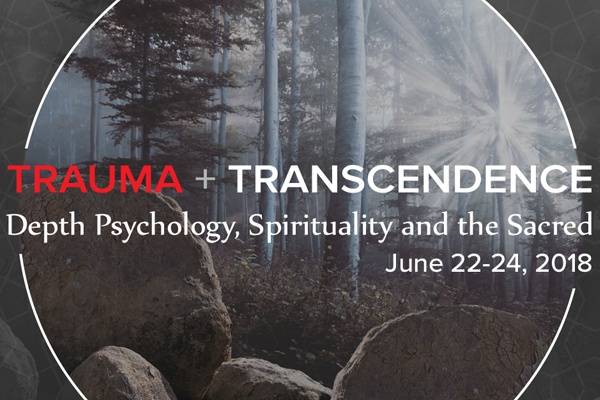A blog post by Melissa Ruisz Nazario
Called Armistice Day or Remembrance Day in other countries, we originally commemorated November 11th because of the signing of the treaty that halted fighting during World War I. Today, known as Veterans Day in the U.S., the focus has shifted a bit, as we show respect and gratitude to those who previously served in our armed forces. We often associate the words “service” and “sacrifice” with being in the military because a mission’s success requires things that aren’t as common in the civilian world: working twelve-hour shifts for months while deployed thousands of miles away from loved ones, missing important birthdays and holidays, and for many, having to put one’s self in harm’s way in a combat zone, risking life and mental wellness.
Read More
Posted in:
Therapist,
Psychotherapy,
archetypes,
clinical psychology,
Psychology,
depth psychology,
military,
resources
A blog post by Melissa Ruisz Nazario, based on an interview with Stacey Shelby, RCC, Ph.D., conducted by Bonnie Bright, Ph.D.
Listen to the full audio interview with Stacey Shelby here. (approx. 30 minutes)
At first, Stacey Shelby, RCC, Ph.D., didn't want to explore the Wild Woman Archetype for her research while in the M.A./Ph.D. Program in Depth Psychology with Specialization in Jungian and Archetypal Studies at Pacifica Graduate Institute. Part of it was due to the type of research she would conduct and the effect it would have on her life. When authoring the book Tracking the Wild Woman Archetype: A Guide to Becoming a Whole, In-divisible Woman published earlier this year, she used a research methodology called alchemical hermeneutics, as described by Dr. Robert Romanyshyn, Pacifica Graduate Institute Professor Emeritus, in his book, The Wounded Researcher: Research with Soul in Mind.
In the introduction to Tracking the Wild Woman Archetype, Stacey defines alchemical hermeneutics as “an unconventional methodology not readily found in traditional academic institutions, and it acknowledges that researchers are often called to their work through personal wounding and complexes. This research methodology is an alchemical process that affects the researcher.”
Read More
Posted in:
The Psyche,
Therapist,
Psychotherapy,
archetypes,
nature,
clinical psychology,
Psychology,
depth psychology,
symbol,
dreams,
individuation,
Pacifica Students,
Pacifica Graduate Institute,
alchemist,
jungian,
relationship,
relationships
A blog post by Melissa Ruisz Nazario, based on an interview with Mai Breech, conducted by Bonnie Bright, Ph.D.
Listen to the full audio interview with Mai Breech here. (approx. 27 minutes)
Mai Breech, a Psy.D. doctoral student in Clinical Psychology at Pacifica Graduate Institute, has a long history of working with orphans and foster children. In 2007, she founded the Children’s Art Village, a grassroots non-profit organization providing art and music to children in Ghana, India, and Nepal so that they can express their creative selves through a means that doesn’t require language, but rather utilizes their creativity. Over the years, the Children’s Art Village has served over 3,000 children annually, and continues to do so. Typically, the programs are summer programs, offering art and music camps for these children in very different orphanages that she partners with.
Read More
Posted in:
The Psyche,
Therapist,
Trauma,
Psychotherapy,
clinical psychology,
Psychology,
graduate school,
creativity,
depth psychology,
dreams,
Pacifica Students,
Pacifica Graduate Institute,
relationship,
relationships
A blog post by Melissa Ruisz Nazario, based on an interview with Daniel Ballin, LCSW, conducted by Bonnie Bright, Ph.D.
Listen to the full audio interview with Daniel Ballin here. (approx. 31 minutes)
“Somatic studies” is an umbrella term that includes somatic psychology (working with the experience of the body to support mental health), somatic movement therapy(working with the experience of the body to promote improved movement functioning), and many forms of complementary and alternative medicine. A somatic perspectivealso flourishes within the fields of education, philosophy, sociology, anthropology, performance studies, and dance. [1]
Read More
Posted in:
Trauma,
Alumni,
Psychology,
graduate school,
depth psychology,
Pacifica Graduate Institute,
somatic
A blog post by Melissa Ruisz Nazario, based on an interview with Jesse Jacob conducted by Bonnie Bright, PhD
Listen to the full audio interview with Jesse Jacob here. (approx. 31 minutes)
Jesse Jacob does not settle for status quo assumptions or lazy thinking in depth psychology. He finds the term “depth psychology” strange because it implies other psychologies are then shallow. A 4th year Clinical Psychology PsyD student at Pacifica, Jesse previously studied language to understand how it shapes and affects an individual’s thinking. In his interview with Bonnie Bright, he provides alternative perspectives on commonly used depth psychological phrases and concepts. For example, he recalls a fellow student in his cohort saying, “Depth psychologists treat the whole person,” to which Jesse responded, “So do other psychologies only treat half the person?”
Read More
Posted in:
clinical psychology,
Psychology,
graduate school,
depth psychology,
Pacifica Graduate Institute,
Spiritual
A blog post by Melissa Ruisz Nazario, based on an interview with Dina Zaki, L.M.F.T., by Bonnie Bright, Ph.D.
Listen to the full audio interview with Dina Zaki here. (approx. 31 minutes)
The Greek myth of Narcissus, one version of it at least, describes a young, proud hunter known for his good looks. He disdains others, including the mountain nymph Echo, who falls in love with him. Because of his behavior, Nemesis, a goddess of revenge, lures Narcissus to a pool, where Narcissus falls in love with the water’s reflection, not comprehending it is his own image. In one version, he stares at his own reflection until he dies. [1]
From this tale we have the terms “narcissism” and “narcissist,” and even the condition of “narcissistic personality disorder,” in which “people have an inflated sense of their own importance, a deep need for excessive attention and admiration, troubled relationships, and a lack of empathy for others. But behind this mask of extreme confidence lies a fragile self-esteem that’s vulnerable to slightest criticism.” [2]
Read More
Posted in:
Trauma,
clinical psychology,
Psychology,
Pacifica Students,
Pacifica Graduate Institute,
relationships,
love
A blog post by Melissa Ruisz Nazario, based on interviews conducted by Bonnie Bright, Ph.D.
Ready to immerse yourself in some of the perspectives of trauma and transcendence being presented at Pacifica’s Trauma + Transcendence Conference June 22-24, 2018? We’ve rounded up our Pacifica Post blog posts and audio recordings of scholars and analysts presenting at the Conference who also recently spoke with Bonnie Bright, Ph.D., about their research.
Although registrations for attending the Trauma + Transcendence Conference in person have sold out, you can still gain access to the video livestream of the Conference’s Friday and Saturday events. Enjoy the Conference from the comfort of your home desktop computer or device by watching the livestream presentations in real time. You also have the option to earn continuing education credits by watching the livestream; please add the additional “Continuing Education Credit Fee” when you register. Details: https://retreat.pacifica.edu/trauma-transcendence/
Read More
Posted in:
Trauma,
Pacifica Events,
transformative,
C.G. Jung,
clinical psychology,
Psychology,
dreams,
psyche,
Spiritual
A blog post by Melissa Ruisz Nazario, based on an Interview with Ann Belford Ulanov, Ph.D., L.H.D., by Bonnie Bright, Ph.D.
Listen to the full audio interview with Ann Ulanov here. (approx. 31 minutes)
In the book The Unshuttered Heart: Opening Aliveness/Deadness in the Self, Jungian analyst Ann Belford Ulanov, Ph.D., L.H.D., says, “we can find our depth by being found in the depths.” But what does it mean, "to be found in depths"? For those of us who constantly seek to better understand ourselves and the world around us, or, as Joseph Campbell said, are "seeking an experience of being alive," what are some ways that we might find ourselves in these depths, to gain those profound insights that help us experience being alive? Ann, who is a prolific author and presenter at Pacifica’s upcoming sold-out Trauma and Transcendence conference in June 2018, says that one way we can find our depth in the depths is through our dreams. “You can’t make up the dream,” she says. “The dream makes up you. And some dreams you really get right away, and they tell you something you never knew before, and it’s as if you’re being addressed.”
Read More
Posted in:
Trauma,
Pacifica Events,
transformative,
C.G. Jung,
clinical psychology,
Psychology,
dreams,
psyche,
Spiritual
Spiritual Implications of Psychosis: How a Spiritual Perspective Can Provide Health Benefits to Mind and Body. A blog post by Melissa Ruisz Nazario, based on an interview with Tanya Marie Luhrmann, Ph.D., by Bonnie Bright, Ph.D.
Listen to the full audio interview with Tanya Luhrmann here. (approx. 34 minutes)
According to the World Health Organization (WHO), schizophrenia is defined as “a severe mental disorder, characterized by profound disruptions in thinking, affecting language, perception, and the sense of self. It often includes psychotic experiences, such as hearing voices or delusions. It can impair functioning through the loss of an acquired capability to earn a livelihood, or the disruption of studies.” The condition affects more than 21 million people worldwide. [1]
Read More
Posted in:
Trauma,
Pacifica Events,
transformative,
C.G. Jung,
Psychology,
Spiritual
Normalizing Non-Ordinary Experiences: An Interdisciplinary Approach. A blog post by Melissa Nazario, based on an interview with Ann Taves, Ph.D. by Bonnie Bright, Ph.D.
Listen to the full audio interview with Ann Taves here. (approx. 28 minutes)
If you began hallucinating, perhaps seeing or hearing things that no one else could perceive, how would you interpret this unusual experience? Ann Taves, Ph.D., professor of Religious Studies at the University of California Santa Barbara and presenter at Pacifica’s upcoming Trauma and Transcendence conference in June 2018, became interested in this topic back in the mid-80s, when there were a lot of people who were being diagnosed with multiple personality disorder. She had a friend who had been abused as a child and who apparently had multiple personalities, or dissociated identity, as the clinicians now call it. Ann says that because she came from a very rational sort of family, it had never dawned on her that our minds could experience changes like what it does with disorders, and she credits knowing her friend and hearing her talk about her experiences as the point at which, for Ann, the door first opened into the range of what was possible.
Read More
Posted in:
Trauma,
C.G. Jung,
Psychology













